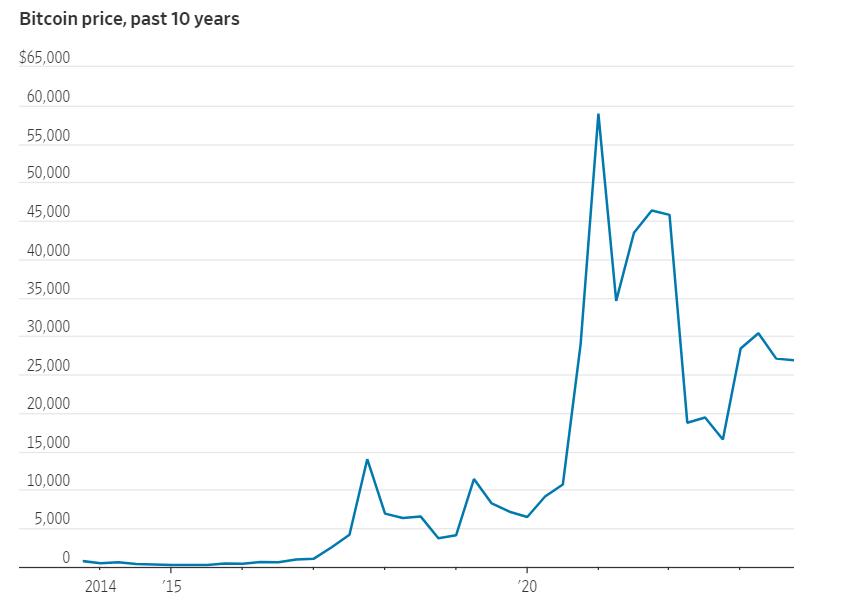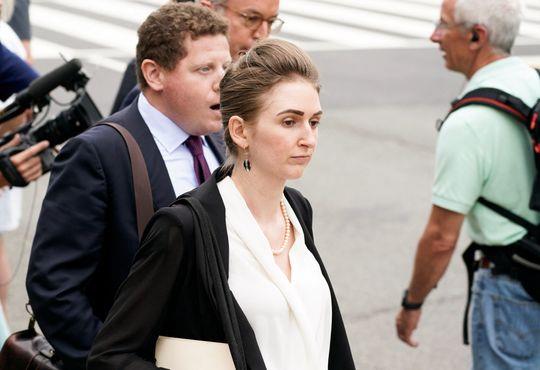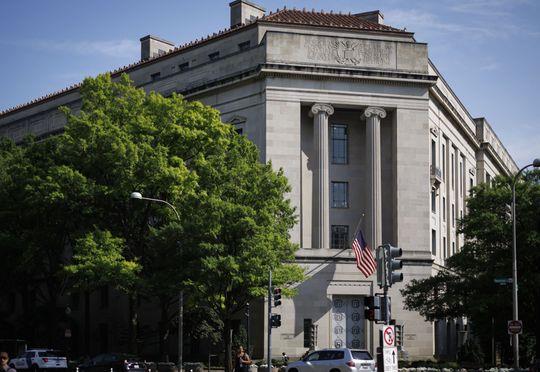Wall Street Journal: Where did the $5 billion in Bitcoin in the hands of the U.S. government come from?
Original author: Vicky Ge Huang, WSJ
Original compilation: Wu Shuo Blockchain
The U.S. government is one of the worlds largest holders of Bitcoin, but unlike other cryptocurrency whales, it doesnt care about the rise or fall of the digital currency.
This is because approximately 200,000 of Uncle Sam’s (US government) Bitcoins were seized from cybercriminals and darknet markets. This is primarily stored in encrypted, password-protected storage devices called hardware wallets controlled by the Department of Justice, IRS or other agencies.
What the federal government does with its Bitcoin has long been a topic of concern among crypto traders, as any sale could potentially impact prices or create other ripple effects in the $1 trillion digital asset market.

The United States has been surprisingly slow to convert its Bitcoin into U.S. dollars. It is neither HODLing (crypto lingo for holding and never intending to sell) nor waiting for Bitcoin to “surge” in order to sell its holdings at a high price. Instead, this pile of Bitcoins is more the byproduct of a lengthy legal process than a strategic plan.
We dont play the market. We basically set up our processes, said Jarod Koopman, director of the IRSs Cyber and Forensic Services Division, which oversees all cybercrime-related activity.
Three recent seizures alone have left the governments coffers with more than 200,000 bitcoins, according to an analysis of public documents by crypto firm 21.co. Analysis shows that even after selling approximately 20,000 Bitcoins, U.S. holdings are still worth more than $5 billion. Total government holdings are likely to be much larger.
The legal process can take years from the seizure of illegal Bitcoin to the receipt of a final order liquidating the tokens into cash. In some cases, this is good for governments as the value of cryptocurrencies grows like crazy.
For example, in 2016, when crypto exchange Bitfinex was hacked by convicted tech entrepreneur Ilya Lichtenstein, Bitcoin was trading around $600. By the time Lichtenstein and his wife Heather Morgan were arrested in 2022, and the Department of Justice announced its largest-ever financial seizure of approximately 95,000 Bitcoins, the token price had risen to $44,000. Today, its price hovers around $30,000.

Heather Morgan was arrested last year on alleged Bitcoin crimes Source: Reuters
The U.S. government did not seize any cryptocurrencies during last years collapse of the FTX exchange, but it did take over hundreds of millions of dollars in assets, consisting mostly of cash and shares in brokerage firm Robinhood Markets. Robinhood repurchased the seized shares from the U.S. Marshals Service in August. FTXs crypto assets were part of its bankruptcy estate; the company is expected to eventually use the funds to close its $8 billion customer funding shortfall or restart the exchange.
When a government agency takes control of a crypto asset, Uncle Sam does not immediately own the asset. Only after a court issues a final forfeiture order does the government take ownership and transfer the tokens to the U.S. Marshals Service, the agency primarily responsible for liquidating seized assets.
While the case is ongoing, the government is keeping the bitcoins as evidence or as proceeds of crime. The Justice Department has been storing seized Bitcoin on hardware wallets since shutting down online drug marketplace Silk Road in 2013. In recent years, the agency has seized 69,000 Bitcoins that once belonged to Silk Road founder Ross Ulbricht, as well as 50,676 Bitcoins that a man from Georgia admitted to stealing from Silk Road.
Governments are typically very slow to dispose of these assets because they have to do a lot of due diligence, the cases are often complex and theres a lot of red tape, said Nicolas Christin, a professor of computer science at Carnegie Mellon University.
As the crypto industry evolves, so does the Marshals Service’s liquidation process. In the early days of cryptocurrencies, the agency held auctions to sell cryptocurrencies directly to interested buyers, many of whom made substantial profits, at least on paper.

wall street journal illustration
Venture capitalist Tim Draper, who made a fortune investing in cryptocurrencies, purchased more than 30,000 bitcoins from the government in two auctions in 2014. In one auction, he paid $632 for each token when they were trading at $618. When Bitcoin dropped to around $180, he paid around $191 per coin in another auction. That same year, Cumberland, the crypto arm of high-frequency trading firm DRW, won 27,000 Bitcoins in an auction.
In January 2021, the Marshals Service decided for the first time to liquidate its seized digital currency stocks on cryptocurrency exchanges. Historically, it has sold crypto assets in multiple batches rather than selling them all at once to avoid the adverse impact that large sell orders can have on the market. In its current approach, the agency has taken additional steps to ensure the market is not adversely affected, including liquidating cryptocurrencies over a longer time window.
In March, the government sold 9,861 Bitcoin through Coinbase. The Marshals Service confirmed the sale. Coinbase declined to comment.
Our goal is to dispose of assets in a timely manner and at fair market value, a representative of the agency said.
In many cases, government sales proceeds will be used to compensate victims. Bitfinex said in July that it received more than $300,000 in cash and 6,917 Bitcoin Cash (BCH) from the Department of Homeland Security, which was valued at about $1,900 at the time. Government agencies investigating more complex crimes may also seek financial support to pay for licensing fees for, for example, encrypted tracking software.
“It’s difficult for us to adapt quickly,” said Koopman from the IRS (Internal Revenue Service). “In less than 10 years, cryptocurrencies have experienced changes that the financial industry took 100 years to do.”



